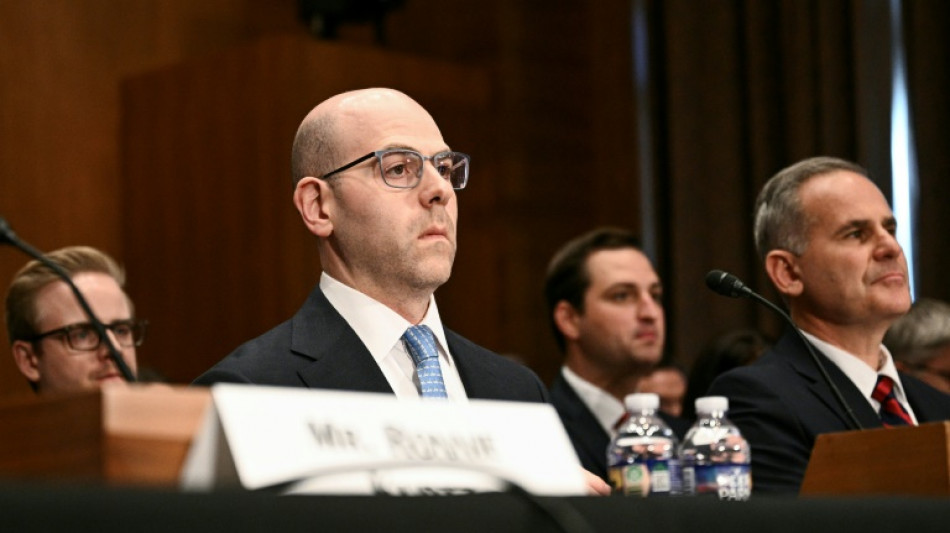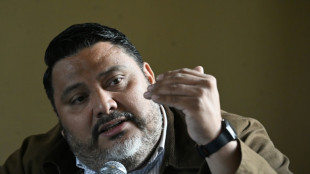
New US Fed governor says rates should be around 'mid-2%'

The US Fed governor newly appointed by President Donald Trump argued Monday for significantly lower interest rates, signaling that concerns over inflation may be overblown.
"I believe the appropriate Fed funds rate is in the mid-two percent area, almost two percentage points lower than current policy," said Federal Reserve Governor Stephen Miran at the Economic Club of New York.
In his first policy speech since joining the central bank, Miran warned that "leaving short-term interest rates roughly two percentage points too tight risks unnecessary layoffs and higher unemployment."
Last week, Miran was the sole dissenter to the Fed's decision to cut interest rates by a quarter point, instead favoring a larger half-point reduction.
On Monday, he laid out an argument on why the "neutral rate" of interest -- the level that neither stimulates nor slows the economy -- has dropped.
This is due to immigration restrictions, tariffs and tax policy changes, he believes. In turn, interest rates should also be lower.
He added that "with respect to tariffs, relatively small changes in some goods prices have led to what I view as unreasonable levels of concern."
Trump has frequently urged the Fed to slash rates this year, stepping up political pressure on the independent central bank.
But underscoring policymakers' different considerations, St Louis Fed President Alberto Musalem cautioned in a separate speech Monday of risks that above-target inflation could be more persistent than desirable.
He said officials should "tread cautiously" in reducing rates.
The central bank's latest decision brought the benchmark lending rate to a range between 4.0 percent and 4.25 percent, and it flagged risks to employment in lowering levels.
Miran, in explaining his thinking on the economy, said policy is "very restrictive."
His swift arrival to the Fed last week came as Trump has ramped up pressure for large rate cuts.
The president has also moved to oust another Fed governor, who has mounted a legal challenge against her removal.
Miran had been chairing the White House Council of Economic Advisers prior to joining the bank, and was sworn in just before the Fed's rate-setting meeting started last Tuesday.
His term expires January 31, and he has faced criticism for taking a leave of absence rather than resigning from his White House role while at the Fed.
He reiterated Monday that he would step down from the Trump administration if he expected to remain for a longer Fed term.
Miran also pledged to remain independent from politics, saying that he would "respectfully listen" if Trump urged for interest rate changes, but ultimately make up his mind based on his own analysis.
He did not shy away from further dissents: "I'm not going to vote for something I don't believe in, just for the sake of creating an illusion of consensus."
X.Ahn--SG

 London
London

 Manchester
Manchester
 Glasgow
Glasgow
 Dublin
Dublin
 Belfast
Belfast
 Washington
Washington
 Denver
Denver
 Atlanta
Atlanta
 Dallas
Dallas
 Houston Texas
Houston Texas
 New Orleans
New Orleans
 El Paso
El Paso
 Phoenix
Phoenix
 Los Angeles
Los Angeles



